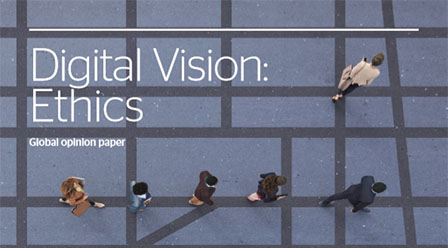The ethical smart city
This article is part of Atos Digital Vision: Ethics opinion paper which explores how embedding ethical reflection into the design of digital technologies can lead to genuine benefits for customers and citizens by helping to address their legitimate concerns about their wider impact, today and into the future.
In cities of the future, data is collected from multiple sources and organized to help people make better-informed decisions. Already many cities around the world are using real-time information from cameras, sensors, and social media to improve traffic, enhance safety and minimize the environmental impact of urban life.
If smart city solutions are to fulfil their transformative potential, they also need to address the ethical dilemmas inherent in these services. All smart city projects are based on the sharing between authorities, citizens and third parties of information from sensors and other intelligence. The technology to achieve invaluable insights is now proven. But only if this information is implemented in a way that protects personal privacy and addresses the concerns of local communities will the smart city paradigm prosper.
Privacy by design
In one of the smart city initiatives we have been involved with, we followed the principles of privacy by design. Minimal Data Sets are used so that only data that is needed is captured or stored, and data is always anonymized. Data analytics takes place at the edge — within the camera — rather than using centralized infrastructure.
Although it would be relatively straightforward to identify every person on a camera, by applying privacy by design in this case people are represented as anonymous dots on a map. Analysis of their movement patterns, combined with other sensor data, such as sounds, is used to indicate any potential incidents. This ensures that the authorities have the data they need for rapid decision-making, without invading citizens’ privacy.
In more ambitious smart city initiatives, when data is structured and organized into data lakes for multiple use cases, privacy by design requires strict controls on access to data. An end-to-end cybersecurity strategy will also be critical, in order to prevent cyberattacks and data breaches.
By itself, however, the technology will not be sufficient to achieve the smart city vision. City leaders, technology partners and local communities need to agree on an approach to data governance that maximizes the value of data while respecting privacy and complying with ethical principles. For instance, in the Sidewalk project supported by Google in Toronto, Canada, an independent civic data trust will control the urban data collected in the neighborhood.
Only with the right approach to privacy and data governance can the data-driven city become a reality that will transform the quality of life for anyone who lives or works in a city.
